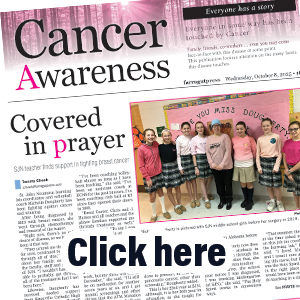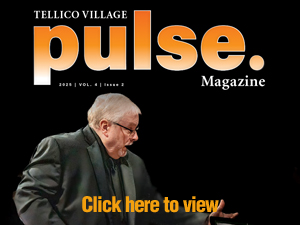Total eclipse nears
Farragut resident Dr. Sonali Shukla, an astronomy outreach tutor with Institute of Astronomy at University of Cambridge, England, has returned home in time to share a first-time experience of seeing a total solar eclipse with her family.
“I’ve never seen one, I’ve always wanted to see one,” said Shukla, a 1999 Farragut High School graduate. “I timed [the visit] so I would be able to see the eclipse.”
Farragut and area residents can share the total solar eclipse experience with the community at two events:
• Town of Farragut is hosting a free Farragut Solar Eclipse Party from 1 to 3 p.m., Monday, Aug. 21, at McFee Park.
The partial phase of the eclipse is expected to begin at 1:04 p.m., with totality beginning at 2:33 p.m. and lasting for one minute and 24 seconds.
The first 450 McFee event attendees will receive free eclipse glasses. Other activities will include children’s crafts, face painting and cookie decorating. Concessions will be provided by First Baptist Concord. For more information, call 865-966-7057.
• Knox County Mayor Tim Burchett and his office is hosting a solar eclipse viewing event from 11 a.m. to 3:30 p.m., Monday, Aug. 21, at The Cove at Concord Park. For more information, visit knoxcounty.org/parks/
Knox County Schools are closed Monday.
However, Stephen Krempasky, executive director of Shop Farragut/Farragut Business Alliance, said he only has heard of one business closing Monday: Embroidery Boutique by Designs for You.
Knox County Sheriff’s Office Capt. Robbie Lawson, liaison for Town of Farragut, said KCSO does not expect any higher threats of crime during the eclipse — but has plans to increase manpower.
“Our main concern is traffic,” he said, adding people would be traveling to viewing events such as the celebrations at McFee Park and The Cove at Concord Park.
“The fact that it’s happening right here, for me back home, makes it a pretty neat thing because it won’t happen here for another hundred years or so,” said Shukla, a predoctoral fellow at the Spitzer Science Center, California Institute of Technology.
“It’s happening in the early afternoon, so everyone should have a good view of the sky,” she added. “You can just notice it will be getting dimmer and dimmer and then, when it actually goes into the total eclipse, it will be like nighttime. It will be dark.
“You’ll be able to see stars. You will be able to see the corona, which is the outermost layer of the sun.”
With this the first total eclipse in the United States since 1979 and the first in East Tennessee since the 17th century, Shukla said the next total eclipse visible in the United States would be in 2024.
“But that one [in 2024] won’t go through Farragut or through Tennessee at all actually,” she said.
For safety, “we usually recommend that you keep [eclipse] glasses on the whole time and definitely during the partial eclipse,” Shukla said. Without the glasses, a viewer can go blind and “quite quickly actually, especially with children.”
As for region viewing, “When you get into Knoxville proper, that’s right about where the line is,” she said. “If you are in downtown Knoxville, you won’t be able to see it.
“From reading other people’s books and hearing other people’s experiences, they say it gets real quiet [during a total eclipse],” Shukla addeed “Animals notice it as well, and you suddenly just feel this kind of calmness that comes over you because it’s something different. You’re getting nighttime in the middle of the day.”
“Even if you’re inside, you’re going to notice that it suddenly gets dark. Even if it’s cloudy, actually, you’ll notice the darkness. It’s kind of a reminder of how powerful the sun is and how much we need it.”


